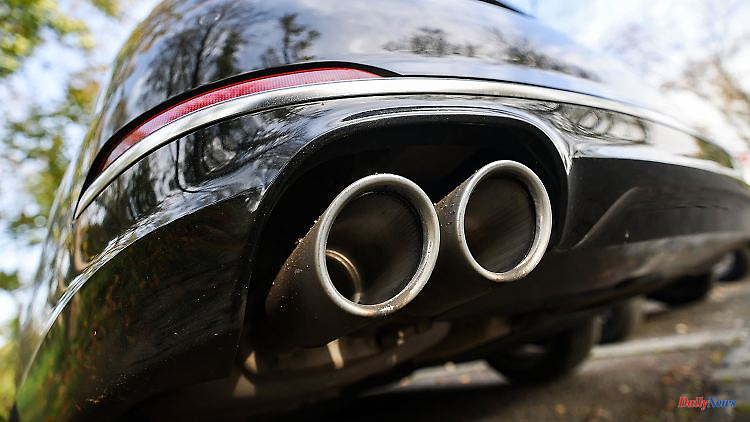Next week, the EU Commission wants to decide to end new cars with combustion engines from 2032. However, the project could fail due to resistance from Germany: Transport Minister Wissing will refuse approval if there is no exception for synthetic fuels.
In the traffic light dispute about the use of synthetic fuels, Federal Transport Minister Volker Wissing has reiterated his opposition to the current EU plans to end new registrations of cars with combustion engines. The EU Commission should have presented a compromise proposal long ago, he told the "Rheinische Post". "But since nothing is on the table so far, we as the FDP cannot agree."
The FDP insists that after the EU ban on new registrations of cars with combustion engines planned from 2035, there will be an exception for vehicles that run on synthetic fuels - so-called e-fuels. The question had to be answered "how internal combustion engines can be approved after 2035 if it can be proven that they can only be fueled with synthetic fuels," demanded Wissing.
In October, the EU Parliament and member states had agreed in principle to end combustion engines. However, under pressure from Germany, they also agreed that the EU Commission should investigate with an open mind whether vehicles with e-fuel-capable combustion engines could not be approved in the future. The final confirmation of the agreement is due in the coming week. The EU ambassadors are already discussing the issue on Friday.
The FDP is receiving fundamental support for its e-fuels demand from the opposition: According to information from the “Rheinische Post”, the Union faction wants to have a motion voted on in the Bundestag on Friday, according to which the federal government is open to technology for drives and e-fuels as an alternative to use fuels for cars with combustion engines.
"In order for mobility to remain affordable for everyone in Germany, jobs to be preserved and the climate protection goals in transport to be achieved, the Federal Government - in addition to electromobility - must use all other available technical and regulatory options for alternative drives and fuels," says it in the Union's voting request available to the newspaper. "With regard to motorized individual transport, these include e-fuels, hydrogen, advanced biofuels and sustainably certified biofuels from cultivated biomass."
Within the traffic light coalition, only the FDP is enthusiastic about the combustion of synthetic fuels in cars. The majority of the Greens and SPD reject the technology as inefficient and too expensive. Surprisingly, however, support for Wissing came from the Green-led Ministry of Economic Affairs: State Secretary Sven Giegold appealed to the EU Commission to find a solution for such combustion engines that are only operated with sustainable e-fuels.












